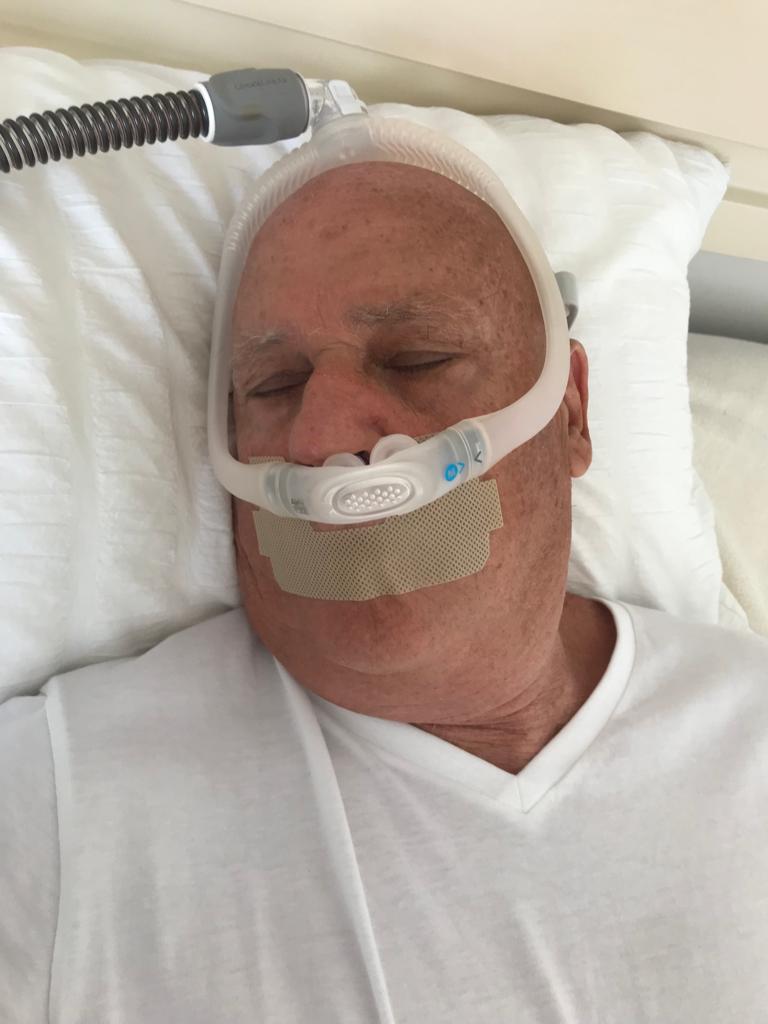Mouth strips, snoring sleep aids
Sleep is a fundamental aspect of our lives, contributing significantly to our overall health and well-being. However, for many individuals, snoring can be a persistent disruptor of a good night’s rest, not only for themselves but also for their partners. Snoring can lead to sleepless nights, strained relationships, and even health problems. In response to this issue, various snoring aids have been developed, and among them, mouth strips have gained popularity as an effective solution. This article explores mouth strips as snoring sleep aids, delving into their mechanism of action, effectiveness, types available, and other essential information to help you understand how they can potentially alleviate snoring and improve sleep quality.

Before we dive into the specifics of mouth strips as snoring sleep aids, it’s essential to understand the root causes of snoring. Snoring occurs when airflow is partially obstructed during sleep, leading to vibrations of the soft tissues in the throat. The resulting sound can range from a gentle hum to a loud, disruptive noise(you can also track your snoring). Several factors contribute to snoring, including:
- Anatomy: Individuals with certain physical characteristics, such as a narrow throat or enlarged tonsils, are more prone to snoring.
- Sleep Position: Sleeping on your back can cause the tongue and soft palate to collapse to the back of the throat, increasing the likelihood of snoring.
- Alcohol and Sedatives: The consumption of alcohol and sedatives can relax the throat muscles, leading to snoring.
- Obesity: Excess body weight, especially around the neck, can put pressure on the throat, increasing the risk of snoring.
- Nasal Congestion: Blocked nasal passages can force you to breathe through your mouth, increasing the likelihood of snoring.
- Age: As individuals age, the throat muscles become weaker, making snoring more common among older adults.
Effectiveness of Mouth Strips:
The effectiveness of mouth strips as snoring sleep aids can vary from person to person. They tend to work best for individuals whose snoring is primarily caused by mouth breathing or the relaxation of throat muscles during sleep. Here are some factors to consider regarding their effectiveness:
- Mouth Breathers: Mouth strips are particularly effective for people who snore because they breathe through their mouths during sleep. By keeping the mouth closed, these strips encourage nasal breathing, which can reduce or eliminate snoring.
- Positional Snoring: Some individuals only snore when sleeping on their backs. Mouth strips can be useful in such cases by helping to maintain side-sleeping positions, which are less likely to result in snoring.
- Combination with Other Treatments: Mouth strips can be used in conjunction with other snoring remedies, such as lifestyle changes (e.g., weight loss or avoiding alcohol before bedtime) or positional therapy (e.g., special pillows or devices that encourage side-sleeping). Combining these approaches may yield better results.
Types of Mouth Strips:
There are different types of mouth strips available, each designed to address specific snoring-related issues. Here are the main types:
- Nasal Strips: These are adhesive strips that are applied to the outside of the nose. Nasal strips work by physically lifting and opening the nasal passages, which helps improve airflow through the nose.
- Mouth Taping Strips: These strips are designed to keep the mouth closed during sleep. They are applied over the lips or mouth area and are intended to prevent mouth breathing, thereby reducing snoring.
- Chin Straps: Chin straps are worn around the head and under the chin to support the jaw and keep the mouth closed. They are particularly effective for individuals who snore due to mouth breathing.
- Hybrid Strips: Some mouth strips combine features of both nasal strips and mouth-taping strips. These hybrid strips aim to address both nasal and mouth-related snoring causes simultaneously.
Using Mouth Strips Safely:
While these strips can be effective for many individuals, it’s essential to use them safely and consult with a healthcare professional if you have any concerns. Here are some safety tips:
- Proper Application: Follow the manufacturer’s instructions carefully when applying these strips. Ensure they are applied securely but not too tightly to avoid discomfort or skin irritation.
- Allergies and Skin Sensitivities: If you have allergies or sensitive skin, be cautious when using adhesive strips. Some individuals may experience skin irritation or allergic reactions to the adhesive.
- Consult a Professional: If your snoring persists despite using mouth strips or if you have underlying medical conditions like sleep apnea, it’s crucial to consult a healthcare professional for a thorough evaluation and personalized recommendations.
- Lifestyle Modifications: these strips work best when used in conjunction with lifestyle changes. Consider making adjustments such as maintaining a healthy weight, avoiding alcohol before bedtime, and sleeping in a position that minimizes snoring.
How do mouth strips work to reduce snoring?
If you’re wondering how these strips actually work to reduce snoring, let’s delve into the science behind it.
When we sleep, our muscles relax, including those in our throat and mouth. This relaxation can cause the tongue to fall back into the throat, obstructing the airway and leading to snoring. It is where these strips come in.
these strips, also known as snore strips or nasal strips, are small adhesive strips that are placed on the outside of the nose or inside the mouth. These strips work by gently pulling open the nasal passages or by holding the tongue in a forward position. By doing so, they help to keep the airway open and reduce the vibrations that cause snoring.
In the case of tongue-retaining mouth strips, they create a slight suction that keeps the tongue in place and prevents it from falling back into the throat. It ensures that the airway remains unobstructed, allowing for a clear passage of air and reducing snoring.
Nasal strips, on the other hand, work by lifting and opening the nostrils, which improves nasal airflow and reduces congestion. However, it can be particularly beneficial for individuals who snore due to nasal congestion or allergies.
Conclusion:
Mouth strips can be a valuable tool in the quest for a snore-free night’s sleep. They address common causes of snoring by either improving nasal airflow or keeping the mouth closed during sleep. While they may not be a one-size-fits-all solution, many individuals find relief from snoring and better sleep quality with the use of these strips. However, it’s essential to remember that snoring can have various underlying causes, and consulting with a healthcare professional is recommended if snoring is a persistent issue.




